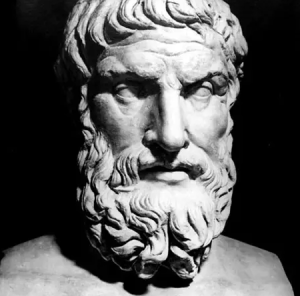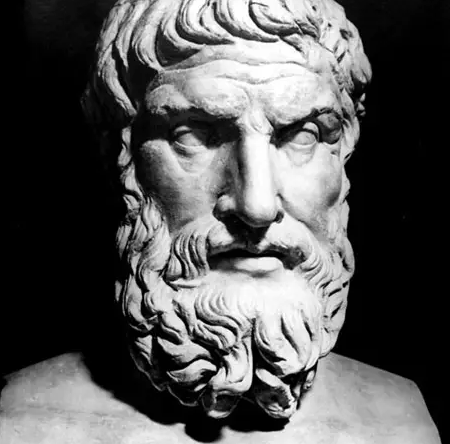Focus on what you can control
It is extremely important if you want to be successful in life, to understand what you can control and what you cannot control.
This important insight was first emphasized by the ancient Greek Stoics who lived, taught and practiced about 2000 years ago. They believed strongly in the value of focusing primarily on what one can control, and understanding what one cannot control.

The Stoic teacher Epictetus was the source for a small booklet known as Enchiridion, which means (roughly) Handbook for Living. It was produced by his disciple Arrian based on favorite talks Epictetus had given. Translations of this book have been printed and read by many thousands of people over the centuries. Soldiers have read it going to war. Monks have read it for encouragement cloistered in monasteries.
Navy pilot James Stockdale was shot down over North Vietnam in 1965, flying his A-4E Skyhawk. As he parachuted down to his certain capture by the enemy, he could have been terrified. Instead, he famously said to himself, “I’m leaving the world of technology and entering the world of Epictetus.” He was subsequently tortured 15 times and spent four years in solitary confinement in total darkness. But because of Stoic principles, he was able to “turn the experience into the defining event of my life, which, in retrospect, I would not trade.”
Countless readers have found the teachings of Epictetus wise and inspiring. The very first words of the Enchiridion deal with what you can and cannot control:
“Of things some are in our power, and others are not. In our powers are opinion, movement toward a thing, desire, aversion [turning from a thing]; and in a word, whatever are our own acts; not in our power are the body, property, reputation, offices [the power of public office], and in a word, whatever is not our own acts.”
In modern language we might say that Stoics believed that, no matter what happens to us, we can control mainly three things:
- Our thoughts and opinions
- Our bodily movements
- Our desires and feelings
Today scientific research has revealed that controlling what is in our power is more complicated than the Stoics thought. This is still not common knowledge among the general public. Here is a more accurate list of what you can control:
- Your thoughts through conscious effort
- Beliefs embedded in your subconscious mind, using conscious mental programming
- Your bodily movements up to the limit of your physical abilities
- Your habits
- Your energy and how you direct it
- Your feelings and attitudes through conscious effort
The reason for repeating “through conscious effort” is that most of the time most of us are running on autopilot. Our behavior is driven by habits buried in our subconscious minds. This prevents us from exercising conscious control without special effort. In other words, we lose control when we don’t stop and think before we act.
This is one major reason so many people are less successful than they would like to be. They do not think before they act, at least not in any thorough manner.
What you cannot control
It is also very important in life and business to understand what you cannot control. Most importantly, you cannot truly control other people. You might influence them, manage them or direct them, but you cannot really control them. People are not robots but have their own minds. They usually are going to do what they want to do in each moment, whether you like it or not. Now if you threaten someone with injury or being fired, you can force people to do things they don’t want to do. But that is not acceptable as a standard practice. It often backfires.
Wise people let other people be who they are and do not try to control them. Enlightened parents and managers use positive messages to influence the behavior of others in their charge.
Likewise you cannot control the weather or traffic or almost anything external to your own body. It is important to understand and accept this and not to obsess over the uncontrollable. That is a cause of mental and emotional problems for some people.
As the Stoics taught, it is not wise to attach great hopes or emotions onto other people. You can love other people, encourage and communicate with them, but you cannot truly control them. If you are a parent, you need to love and teach your children. But do not hold them too tightly or restrictively, Stoics advised.
The Stoics even had a slogan Memento Mori, which means “remember that you die.” Not only will you die, but your loved ones will also die. Life was short in ancient times, and many children died young. For early Stoics, Memento Mori meant “appreciate the present moment” as well as “appreciate your mortality” (you are not a god). For early Christians, the same phrase also meant “remember your life after death.”
In every situation of life, for best success, focus on what you can control. Control your thoughts as much as possible. Replace negative thoughts with positive thoughts. Control your actions and your body. Control your feelings and responses. This is key to achieving real success in life and business.
Image by Olya Adamovich from Pixabay

